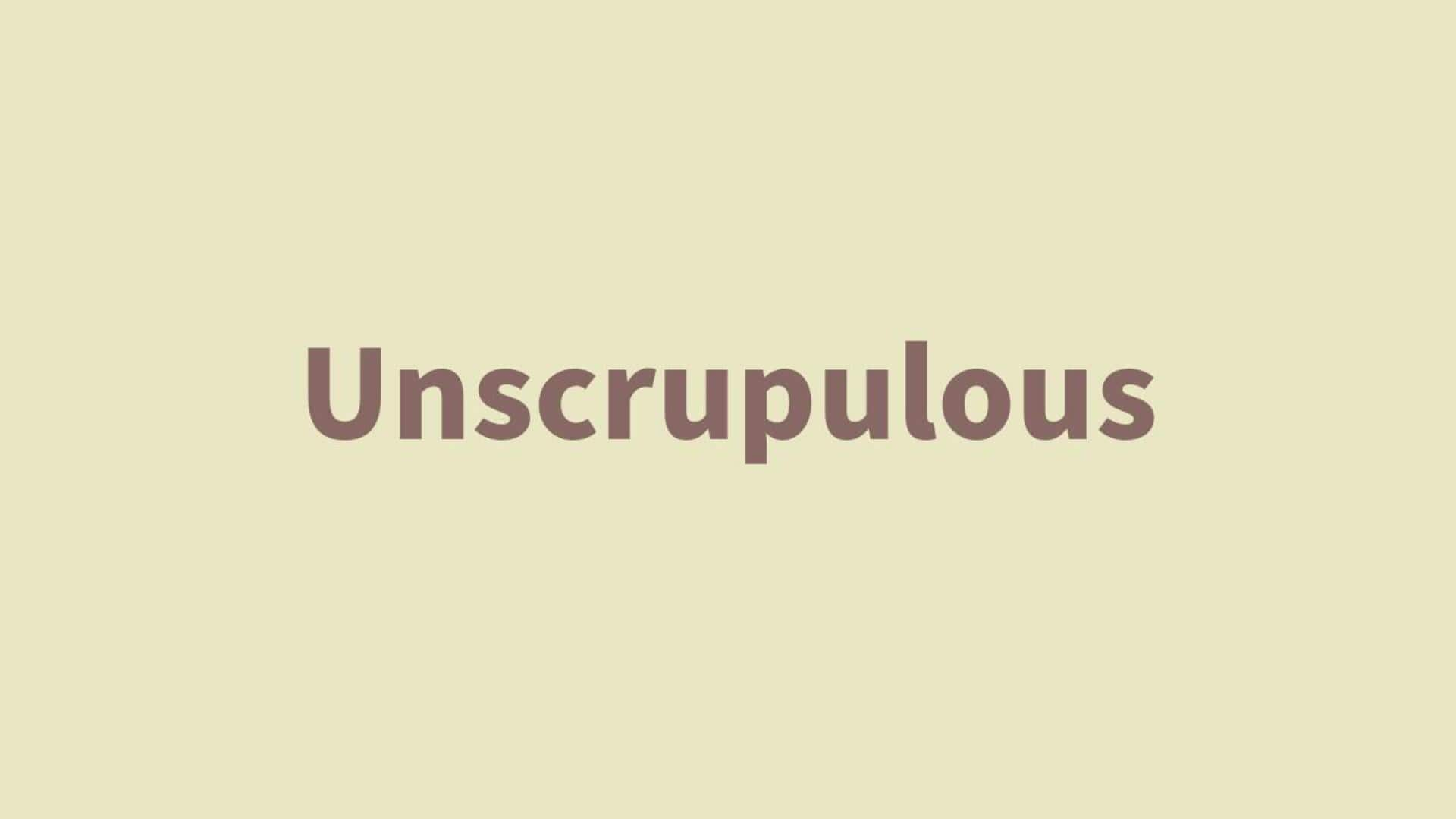
Word of the Day: Unscrupulous
What's the story
The word "unscrupulous" is an adjective that describes someone who lacks moral principles or shows a disregard for what is right. An "unscrupulous" person is often willing to engage in dishonest or unethical behavior to achieve their goals, showing little concern for the consequences. This word is typically used to point out actions or individuals that operate without a sense of fairness or integrity.
Origin
Origin of the word
"Unscrupulous" comes from the Latin word scrupulus, which means "a small sharp stone" or "uneasiness of the mind." Over time, scrupulous evolved to mean "having moral integrity" or "being concerned about what is right." The prefix un- denotes the absence of this quality, thus creating "unscrupulous," which first appeared in English around the early 18th century.
Synonyms
Synonyms for 'unscrupulous'
Common synonyms for "unscrupulous" include dishonest, immoral, corrupt, unethical, deceitful, and ruthless. These words share the common theme of lacking honesty or integrity. Depending on the situation, other alternatives like conniving, cunning, manipulative, and wicked might be used. Each synonym highlights different nuances of unethical behavior, making "unscrupulous" a versatile term to describe a variety of morally questionable actions.
Usage
Sentence usage
Here are examples of how "unscrupulous" can be used sentences: "The 'unscrupulous' businessman manipulated his clients for profit, showing no regard for the harm caused." "Her 'unscrupulous' behavior during the negotiations left a bad impression on everyone involved." "The 'unscrupulous' politician used deceitful tactics to win votes, without caring about the truth."
Impactful
Why use the word?
The word "unscrupulous" is helpful when describing people or actions that don't follow moral guidelines. It has a stronger impact than words like "dishonest" or "bad," highlighting a complete lack of fairness. Using this word makes it clear that the behavior is not just unethical, but also self-serving. It's particularly useful when discussing unethical practices in areas like business, politics, or personal relationships.